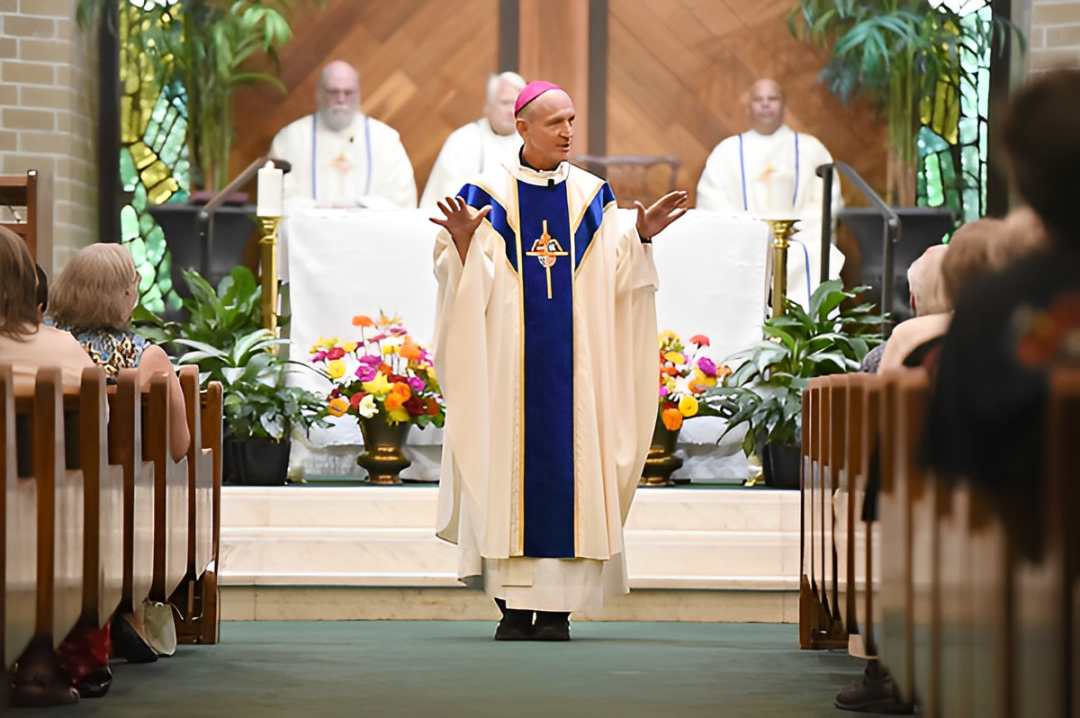The Catholic bishops of Kentucky and Tennessee issued a significant statement supporting migrant communities. On the Feast of the Holy Family, they reminded everyone of the migration story of Jesus, Mary, and Joseph and how they sought refuge in a foreign land. The bishops expressed concern about the fear and uncertainty surrounding immigrants today, acknowledging the challenging discussions in society about migration.
The letter from the bishops included a pledge of support for immigrants, emphasizing their commitment to stand by them with every available resource. “We will continue to advocate for your just treatment and dignity,” they declared, citing Catholic Social Teaching as a guide to their advocacy. However, as Tennessee’s government begins discussing immigration policies, it is essential that the bishops follow up with concrete actions to turn their words into tangible change.
A Call for Action Amid Policy Discussions
Tennessee’s Governor Bill Lee has called for a special session of the General Assembly starting on January 27 to discuss “public safety measures regarding illegal immigration.” This call comes in response to the Trump Administration’s push for states to take steps toward enforcing immigration policies. With these developments, the Catholic bishops of Tennessee must now act on their promises and offer meaningful guidance to lawmakers on how to handle immigration policy.
The United States Conference of Catholic Bishops (USCCB) has already provided the Tennessee bishops with a clear framework on how immigration policies should be approached. These guidelines focus on humane and balanced solutions, emphasizing the need for compassion and justice in dealing with migrants.
The USCCB’s Principles for Immigration Policy
The USCCB has laid out six core principles that should guide the decisions of lawmakers when addressing immigration issues. These principles are:
- Enforcement should be targeted, proportional, and humane: The focus should be on enforcement that treats individuals with respect and fairness, not harsh or blanket policies.
- Humanitarian protections and due process must be guaranteed: Migrants should be protected under the law, and their rights to fair treatment must be upheld.
- Long-term residents should have a pathway to citizenship: People who have been living in the U.S. for many years should have an opportunity to become citizens if they meet certain criteria.
- Family unity should remain a priority: The U.S. system should continue to prioritize keeping families together, as family unity is a key value in Catholic social teaching.
- Legal pathways should be more reliable and efficient: The process for immigrants to enter and stay in the U.S. legally should be streamlined and made more accessible.
- The root causes of forced migration should be addressed: It’s important to understand why people are migrating and to work toward resolving the issues that force them to leave their homes, such as violence, poverty, and instability.
Time for Action: Bishops Should Educate Lawmakers
Now, more than ever, it’s important for the bishops of Tennessee to take action. They should use their position to educate the governor and lawmakers about these essential principles. A letter to the governor, lieutenant governor, the speaker of the House, and all members of the General Assembly should be sent without delay, urging them to follow the guidance provided by the USCCB. This letter should emphasize the need for humane treatment of migrants and the importance of policies that align with Catholic values.
In addition to sending the letter, the bishops should organize a prayer service at the state Capitol. This service would provide a moment for reflection, invoking the spirit of charity, justice, and the wisdom of St. Thomas Aquinas to guide the decisions of lawmakers. By leading such an event, the bishops can make a powerful statement about their commitment to immigration reform and their support for migrant families in Tennessee.
Moving Beyond Words
The pastoral letter from the Tennessee bishops was an important first step, but it is crucial that they now move beyond words and take concrete actions to support migrants. With the special session of the General Assembly fast approaching, the bishops have an opportunity to directly influence the conversation around immigration policy.
By advocating for humane, just, and compassionate policies, the bishops can ensure that Tennessee’s laws reflect the values of love, dignity, and respect for all people, especially immigrants seeking a better life.
In the coming weeks, the bishops have a chance to take leadership on one of the most pressing issues of our time. Their actions can make a real difference in the lives of migrants and contribute to a more just and compassionate society.
Disclaimer: This article has been meticulously fact-checked by our team to ensure accuracy and uphold transparency. We strive to deliver trustworthy and dependable content to our readers.

